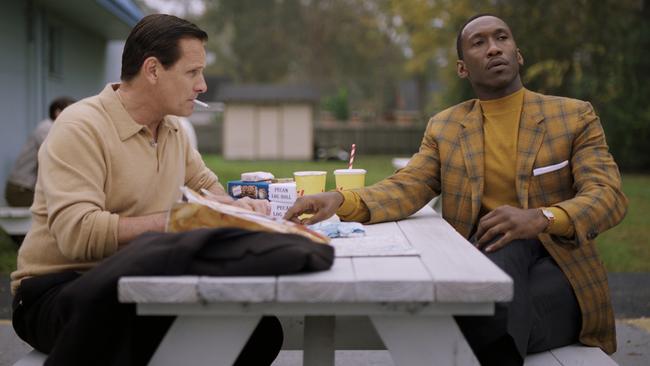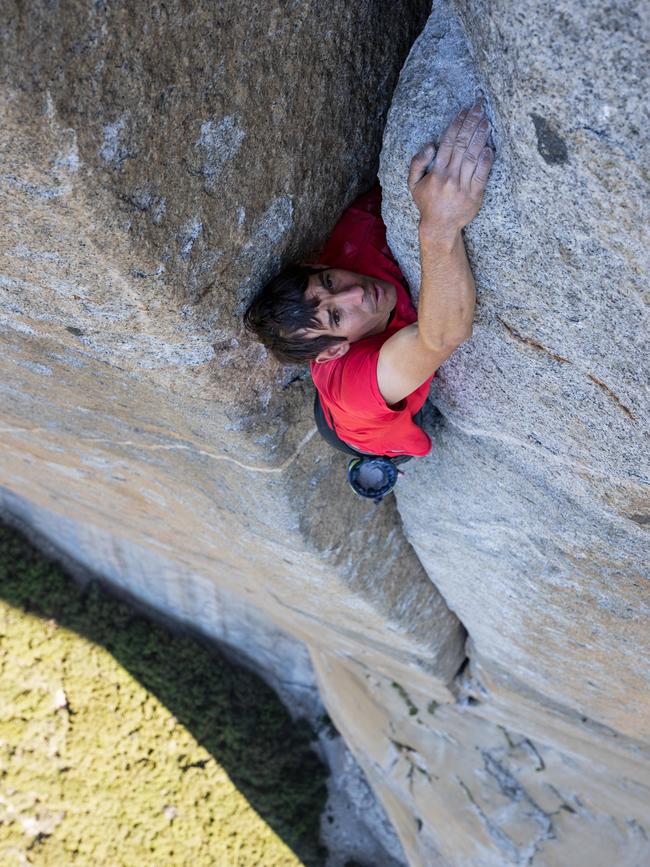On the road to understanding
Green Book is a feel-good, true-life story about racism in the US south of 1962.

Peter Farrelly, whose directing career began with Dumb and Dumber (1994), which he made in partnership with his brother, Bobby, has tackled a true-life story with Green Book, a feel-good movie that explores the theme of racism in the southern states of the US in 1962. Basically, it’s a film with the well-worn but reliable premise of the odd couple, and Bruce Beresford made perhaps the definitive version of the subgenre with the Oscar-winning Driving Miss Daisy (1989).
The couple in this case are Anthony “The Lip” Vallelonga (Viggo Mortensen in fine form), and Don Shirley (Mahershala Ali), a strangely unworldly musician. Tony is a beefy blowhard who works as a bouncer at the Copacabana nightclub in New York and lives with his cheerful wife, Dolores (Linda Cardellini), and their two children. He is quick with his fists and not very bright, and when the Copa closes for renovations he needs to find part-time employment to carry him over until Christmas.
Although it’s established early on that Tony is a racist at heart — when two African-American workers come to fix the plumbing in his apartment he throws the glasses from which they drank into the garbage after they leave — he takes a job with effete pianist Dr Shirley, who dresses like an African prince and who lives in an extravagantly furnished apartment above Carnegie Hall. Shirley and the other (white) members of his trio are about to tour the south giving concerts, and Tony will be his driver; the other two musicians are driving separately.
That’s where the title, Green Book, comes in. The Negro Motorist Green Book, edited by Victor Hugo Green, was published annually from 1936 to 1966. At a time of virtual apartheid in the south, the book served as a guide to accommodation and restaurants to which blacks were welcome so that they might “enjoy vacation without aggravation”. Little is made of the book in Farrelly’s film, but there are plenty of depictions of the fanatical racism that cast a deep shadow over the US at the time.
The problem with Green Book is that it’s so predictable. Once the theme is established, there are few surprises. Sequence after sequence sets up a similar situation; a black entertainer is welcome as long as he doesn’t get ideas above his station. Dr Shirley is welcome to perform a private concert in the stately home of a southern gentleman, but he is expected to use an outdoor toilet. A hotelier is delighted to have him as a Christmas attraction, but he isn’t allowed to eat in the hotel dining room. And so on. Meanwhile, Tony is impressed by his employer’s musical skills — “He doesn’t play like a coloured guy, he plays like Liberace,” he tells his wife. And there are no prizes for guessing that the racist redneck and the artistic African-American will become friends during the film’s extended running time.
Some of these scenes, unsurprising as they are, are well handled, thanks to the skill of the two actors involved. Others, such as a scene in which Tony introduces Dr Shirley to Kentucky Fried Chicken, are a bit embarrassing.
As a reminder of the way things were back then the film makes its points without a great deal of subtlety and the direction is flabby. It compares unfavourably with Spike Lee’s riveting BlacKkKlansman, which was released last year and which was a much tougher depiction of race relations in the south. But Farrelly is seeking to entertain with Green Book, not to provoke. The performances of his actors — Mortensen, rarely better, and Ali — make it all worthwhile.
-

Free Solo, a documentary feature by Elizabeth Chai Vasarhelyi and Jimmy Chin, records the extraordinary exploits of mountaineer Alex Honnold and his successful attempt to scale the 3000ft (914m) almost sheer face of the El Capitan monolith in California’s Yosemite National Park without using any ropes or safety precautions. The fact he succeeded in no way reduces the nailbiting suspense of watching this courageous 30-year-old as he painstakingly makes his way up the cliff, using footholds he has spotted on a previous, less fraught, climb.
Several have died attempting to conquer El Capitan, but Alex seems to know no fear. And his feat is captured by an almost equally courageous camera team; they’re right up alongside him, though unlike him they are taking safety precautions.
Before the climactic climb we meet Alex’s girlfriend, Sanni McCandless, who is the inadvertent cause of a minor accident that delays his climb, as well as, far more briefly, his mother. As the film proceeds it becomes obvious that co-director and cameraman Chin is seriously concerned that his friend may fall to his death.
The suspense is enhanced by a fine music score by Marco Beltrami, and the production is immaculately assembled. This is most definitely a film to see on the big cinema screen — unless, of course, you suffer from vertigo.
-
French auteur Claire Denis is beloved by serious film critics the world over, although I must confess I find her work uneven. Her latest, Let the Sunshine In, which is getting an extremely limited release, stars Juliette Binoche as Isabelle, an artist aged about 50, who worries that her life as a lover may be coming to an end. It’s a strong theme, although the way in which Denis handles it tends to portray Juliette as a somewhat self-centred woman who neglects her 10-year-old daughter.
We meet her first having sex with Vincent (film director Xavier Beauvois), a banker, and clearly not enjoying it. Later she has a one-night stand with a young actor (Nicolas Duvauchelle), and there are other men too. Francois (Laurent Grevill), her ex-husband, shows up and stays the night.
Binoche is amazingly good in this role and it’s no small thing for a contemporary film to celebrate the sexuality of a middle-aged woman. But Juliette’s self-absorption becomes somewhat tiresome after a while.
The last section of the film features Gerard Depardieu as a fortune-teller who gives Isabelle all sorts of useless advice that she apparently takes seriously. It’s a bit sad to contemplate that Depardieu, who has not aged very well, was once one of the most dynamic actors in French cinema.
Let the Sunshine In is unquestionably an interesting film made by and about women, but it doesn’t deliver the comforting message promised by its title.
Green Book (M) 3 stars
National release
Free Solo (M) 4 stars
Limited release
Let the Sunshine In (Un beau soleil interieur) (MA15+) 3 stars
Limited release



